What are the three triggering methods of triggers?
Three triggering methods of triggers: 1. Level triggering; when the trigger signal is a valid level (high or low), the input signal enters the trigger circuit and sets the trigger to the corresponding state. 2. Edge trigger refers to receiving input data when a certain agreed transition (positive transition or negative transition) of the clock pulse CLK arrives. 3. Pulse trigger.

The operating environment of this tutorial: Windows 10 system, Dell G3 computer.
The three triggering methods of flip-flops are: level trigger, edge trigger, and pulse trigger.
Level trigger
When the trigger signal is at a valid level (high or low), the input signal enters the flip-flop circuit and sets the flip-flop to the corresponding state. After the trigger signal becomes an invalid level, the input signal is blocked and the trigger state is maintained.
The status changes with the entire process of valid signals.
**Types of flip-flops: **Level-triggered SR flip-flop, level-triggered D flip-flop
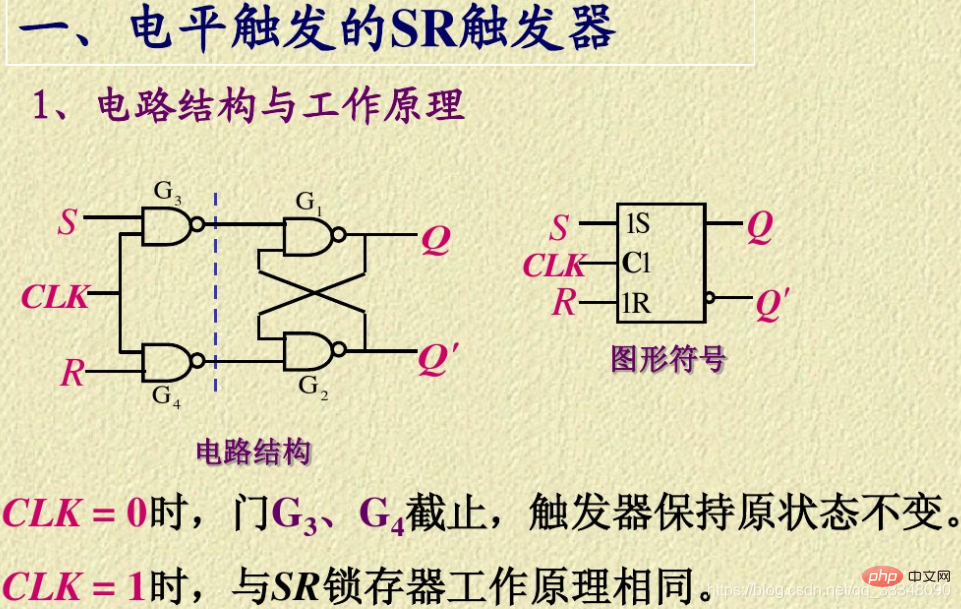
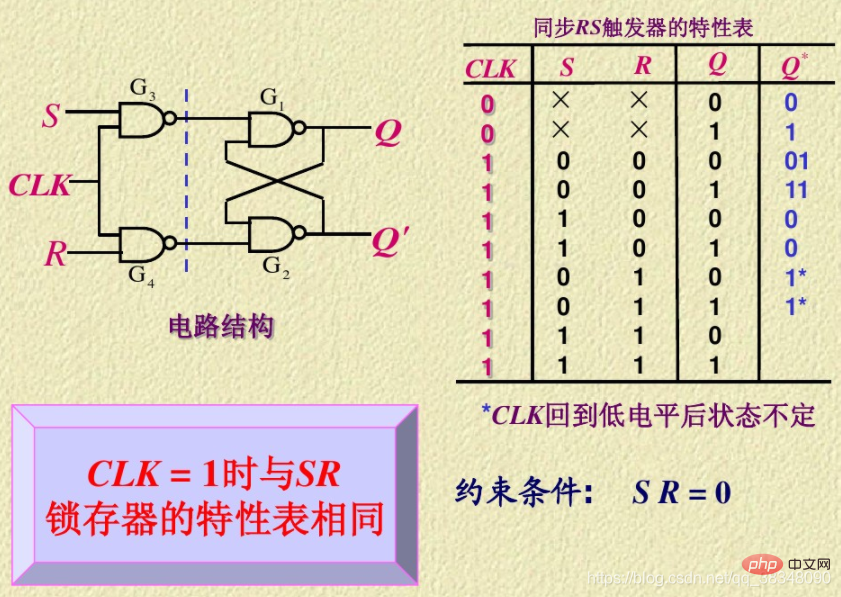
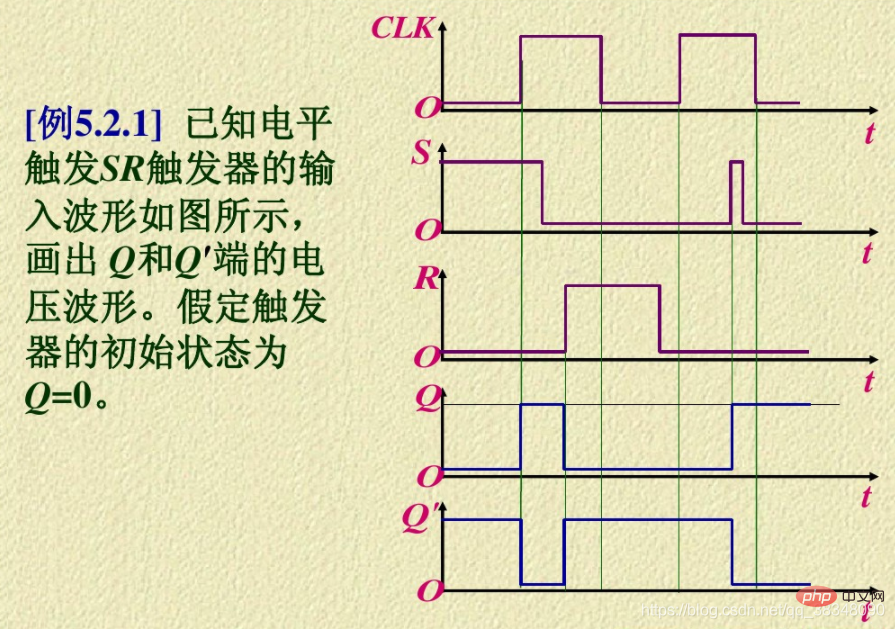
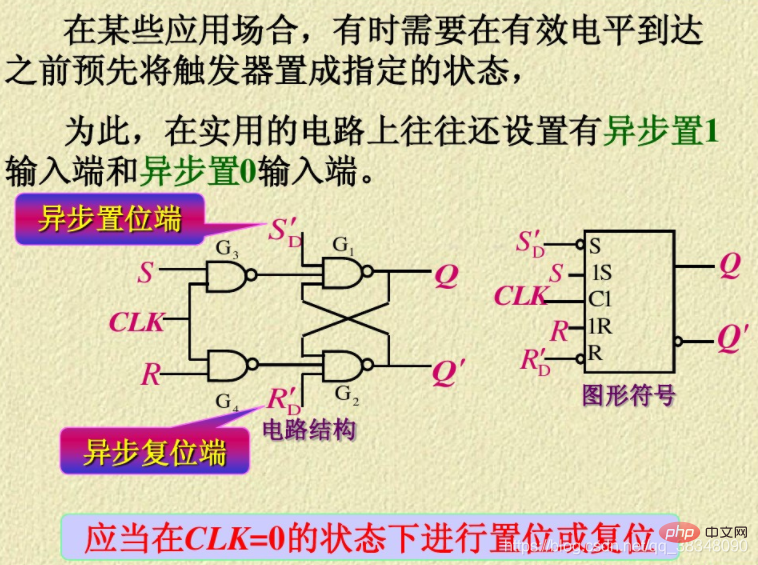
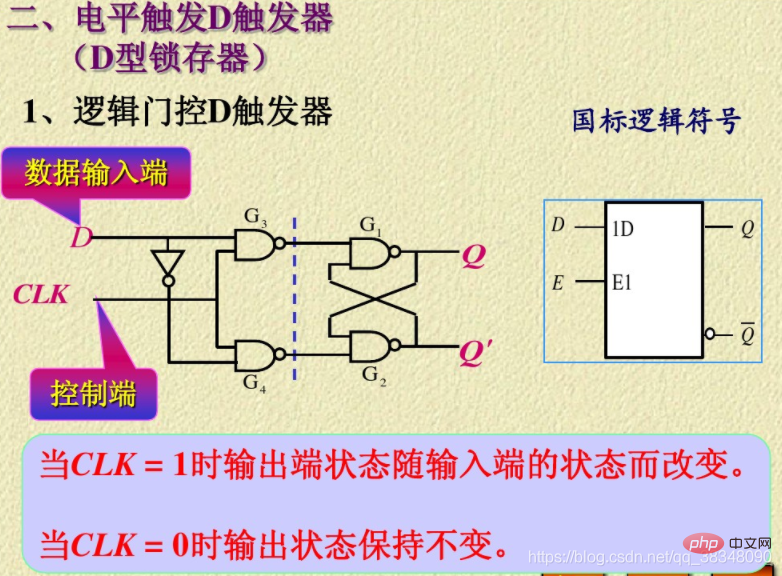
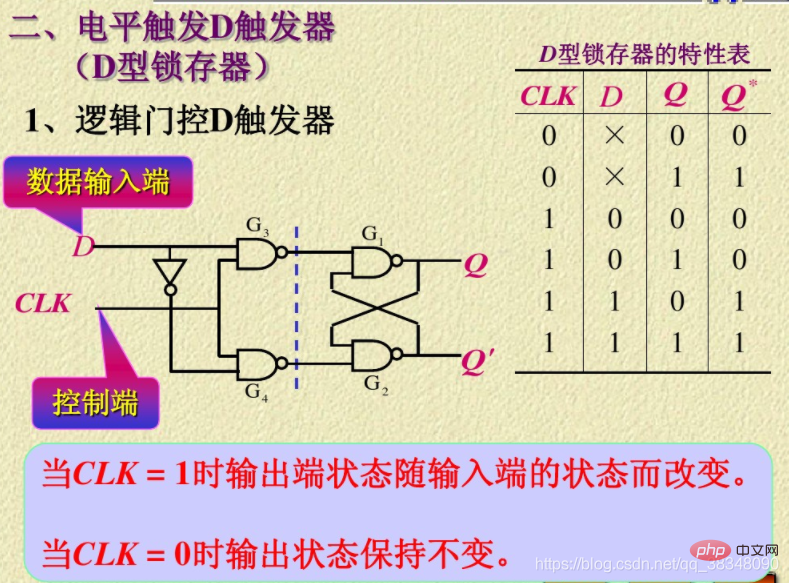
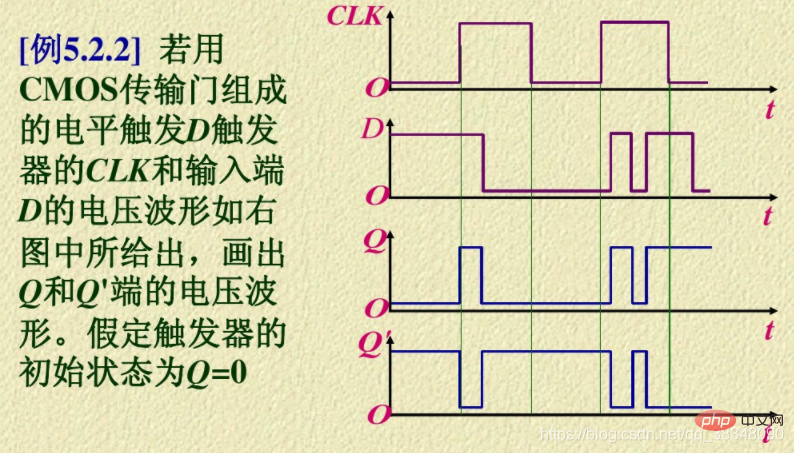
# Level triggered action characteristics:
Only when CLK becomes a valid level, the flip-flop can accept the input signal and set the flip-flop to the corresponding state according to the input signal. During the entire time when CLK=1, changes in S and R will cause changes in the state of the flip-flop output. If the input signal changes multiple times during CLK=1, the state of the flip-flop will also flip multiple times.This reduces the circuit’s ability to resist interference.
In a clock pulse cycle, the phenomenon of flip-flop flipping multiple times is called somersault.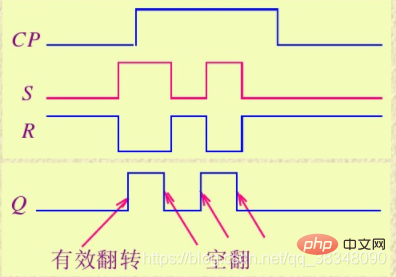
Edge trigger
In order to improve the reliability of the trigger and enhance the anti-interference ability, it is hoped that the trigger will only depend on The state of the input signal reaches the moment when the falling edge (or rising edge) of the CLK signal arrives, and changes in the input state before and after this have no impact on the state of the flip-flop. Edge triggering refers to receiving input data when a certain agreed transition (positive transition or negative transition) of the clock pulse CLK arrives. A flip-flop that does not receive data during CLK=l and CLK=0 and when non-conventional transitions of CLK arrive.
is only related to the status at that moment.
Types of flip-flops:
Use two levels to trigger an edge flip-flop composed of a D flip-flop, maintain a blocking flip-flop, and use gate circuit transmission delay Time edge trigger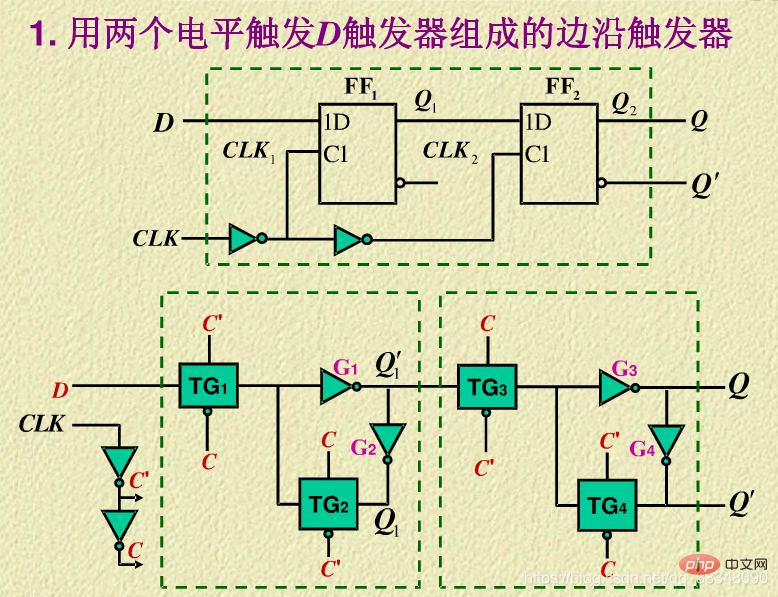
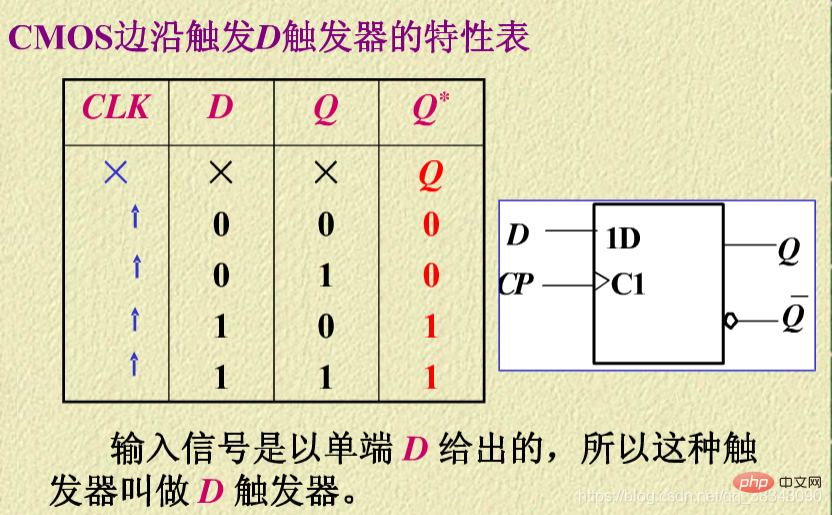
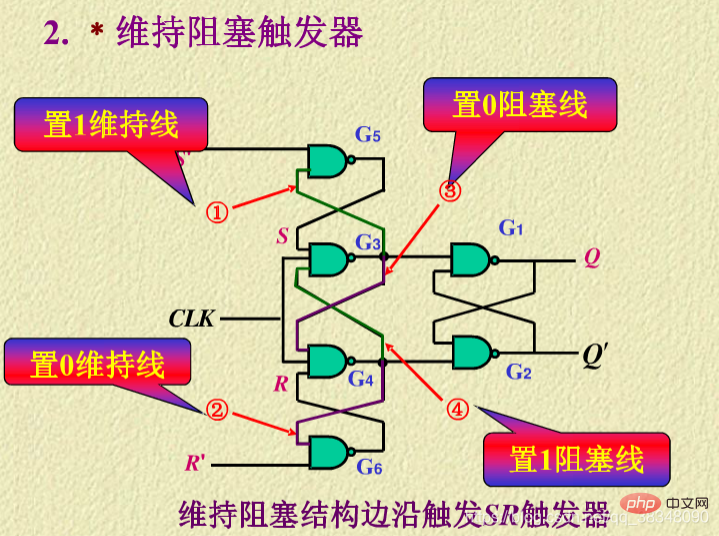
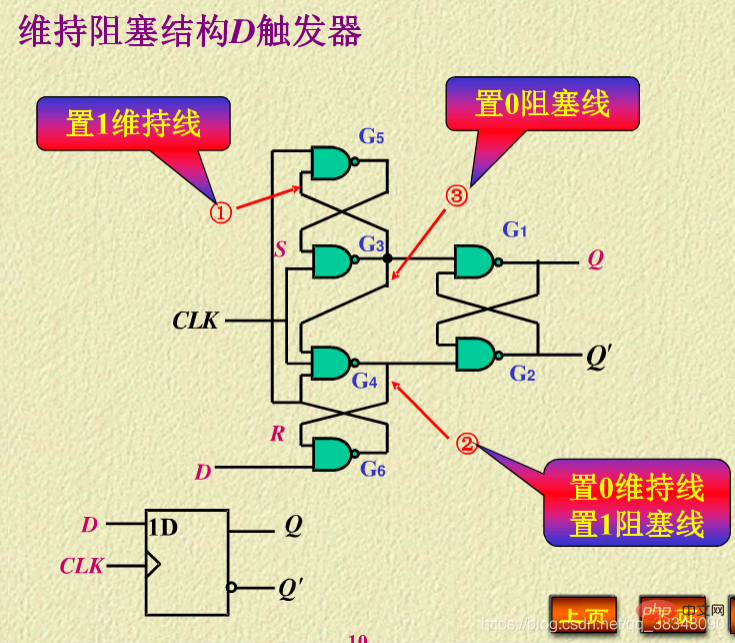
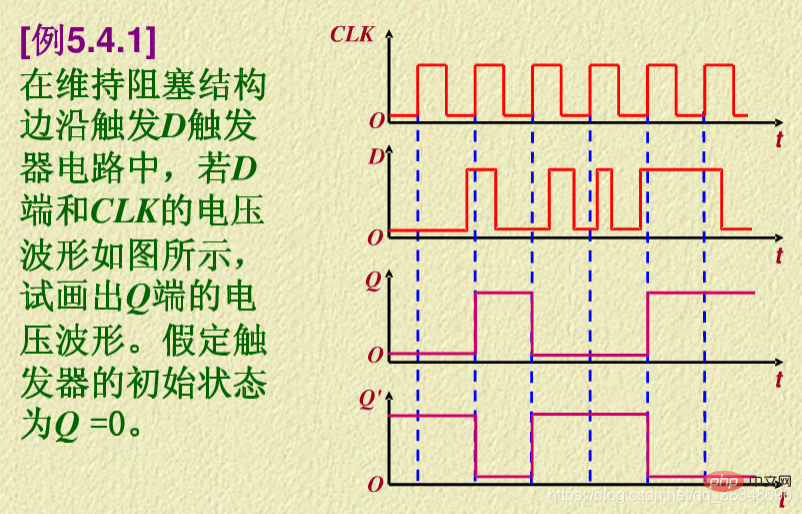
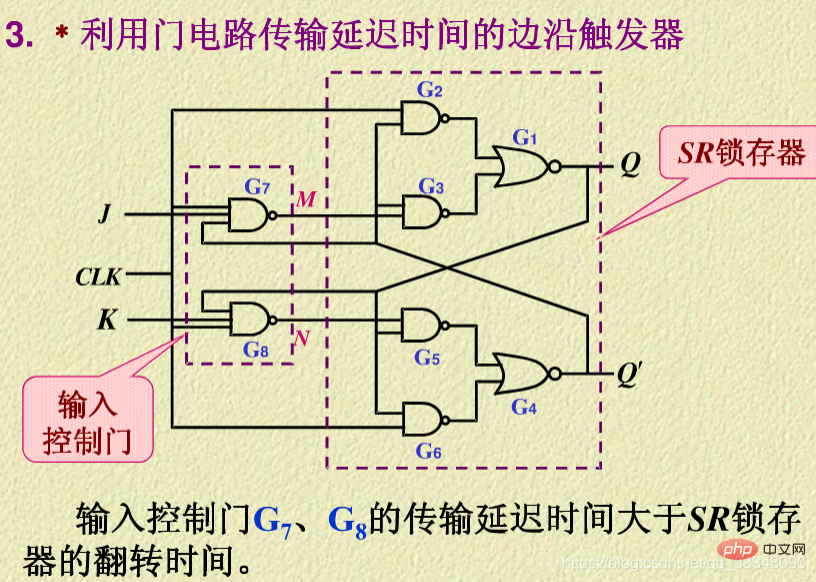
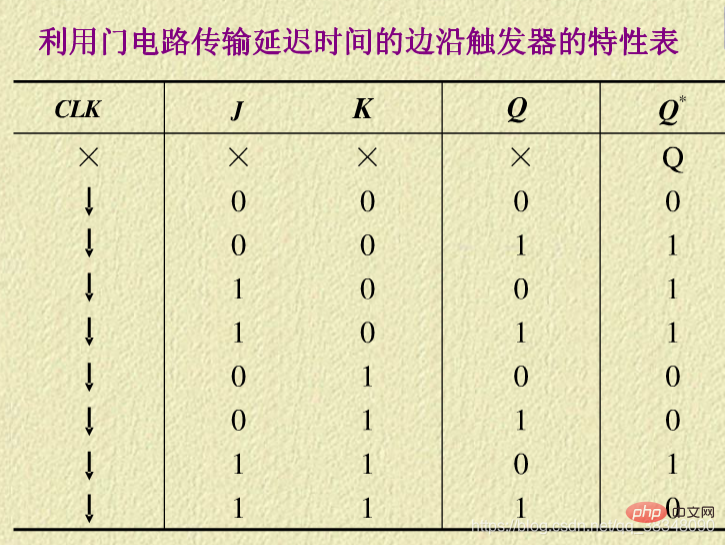
The secondary state of the flip-flop only depends on the rising edge (also called the positive edge) or falling edge (also called the positive edge) of the clock signal. The logic state of the input when a negative edge) arrives. In the past and in the future, changes in the input signal have no effect on the output state of the flip-flop.
This feature effectively improves the anti-interference ability of the trigger, thus also improving the working reliability.
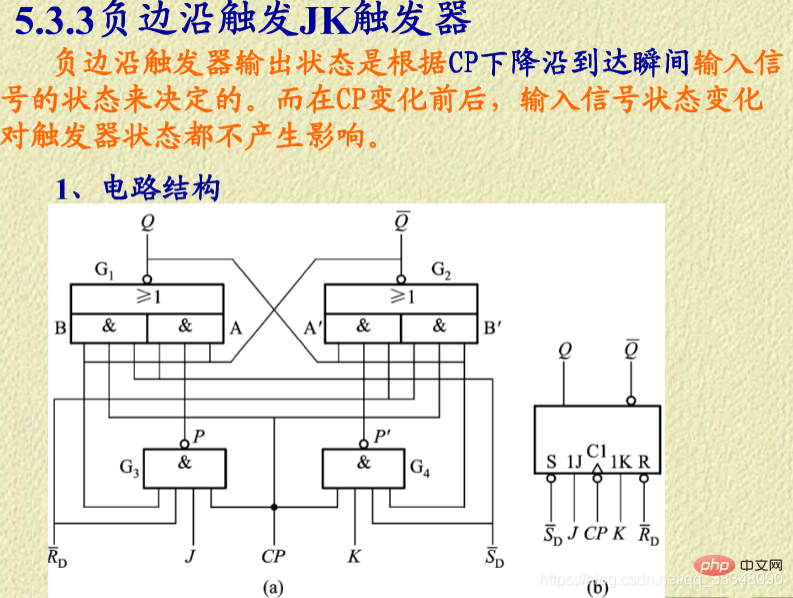
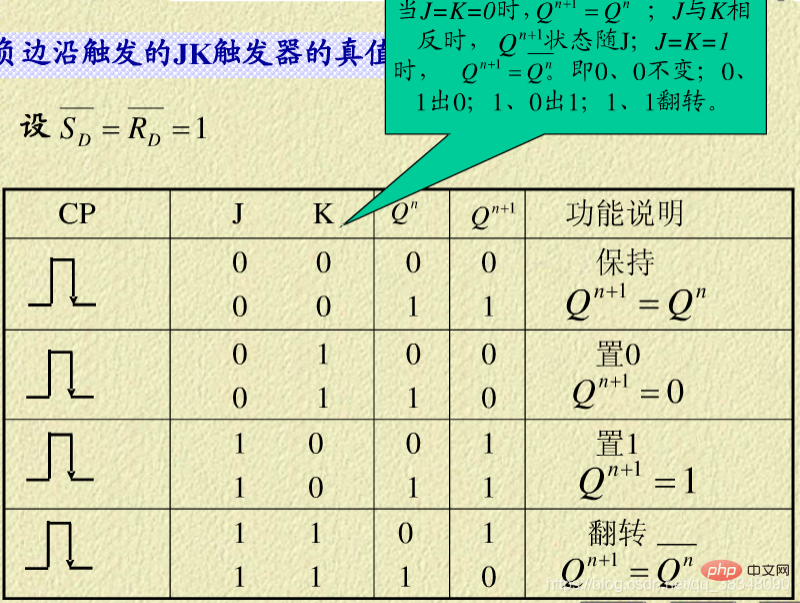
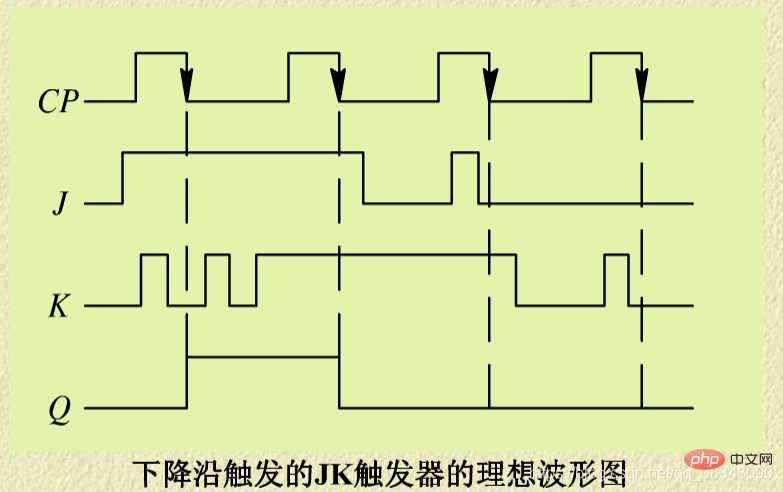
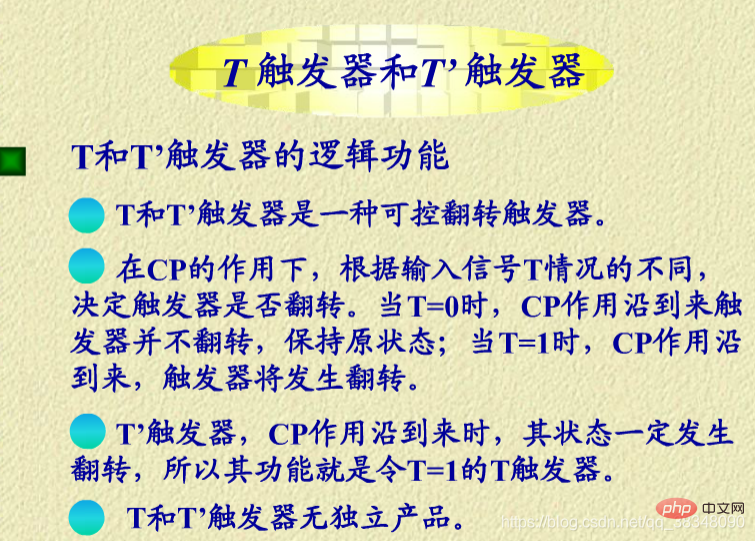
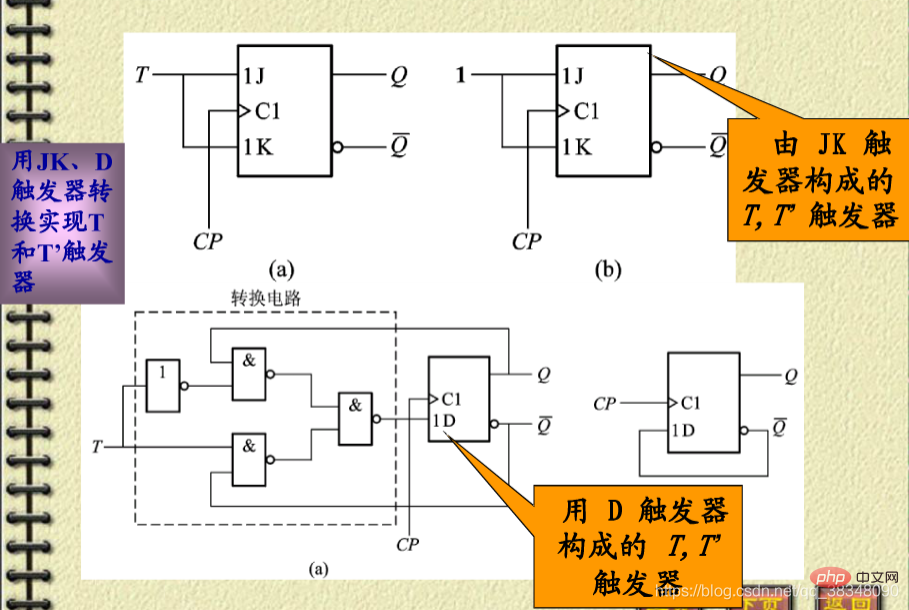
Pulse trigger
Commonly used master-slave structure is implemented, that is, the master and slave flip-flops are connected in series, and the trigger signal is inverted. Taking the positive pulse trigger as an example, when the trigger signal is high, the input signal enters the main trigger and sets the main trigger state; after the trigger becomes low, the input signal is blocked and the main trigger state is maintained. At the same time, the slave trigger The status is determined based on the main trigger status.The signal may only change once.
Type of trigger:
Master-slave SR trigger, master-slave JK trigger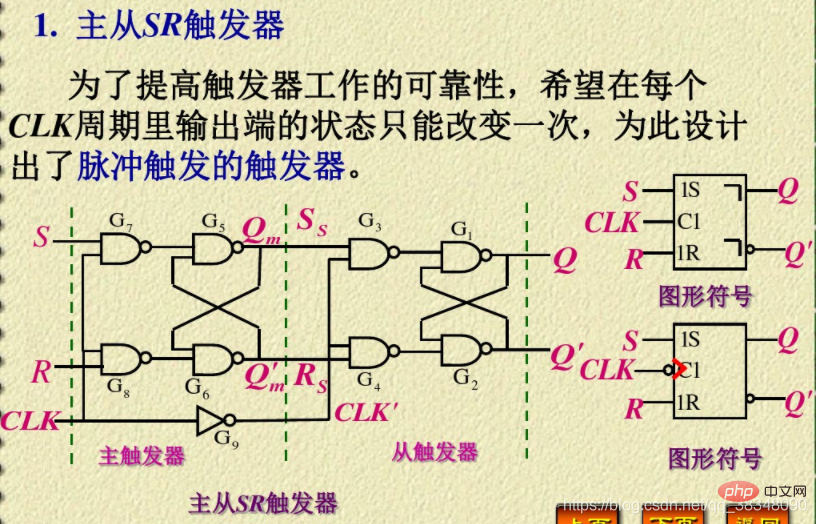
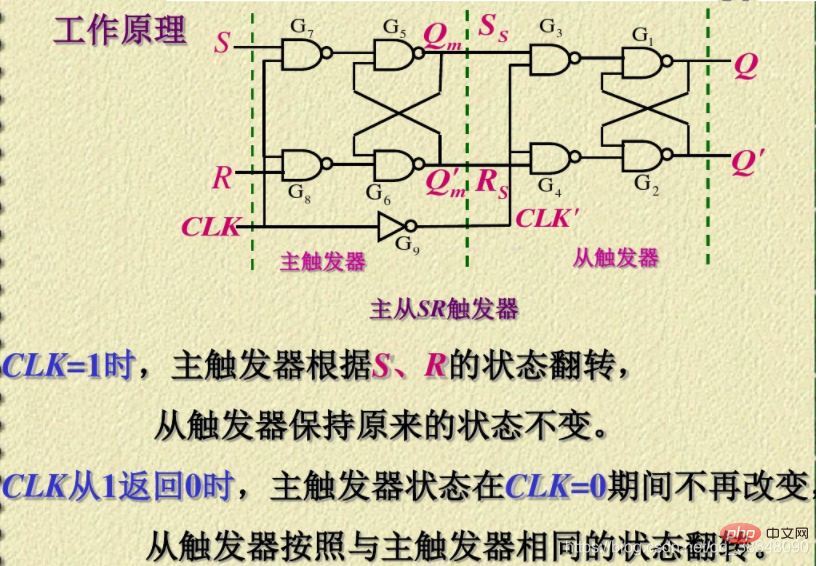
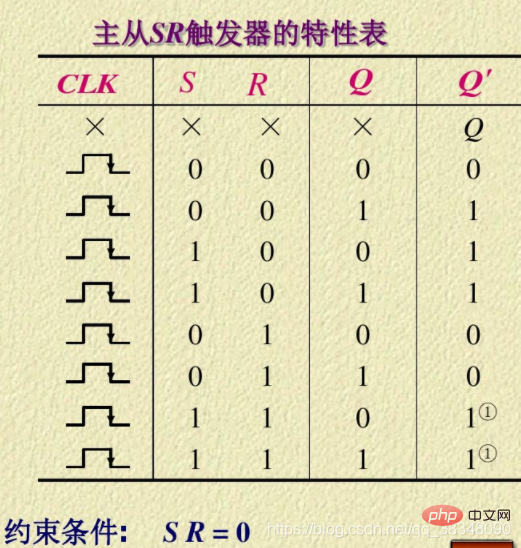
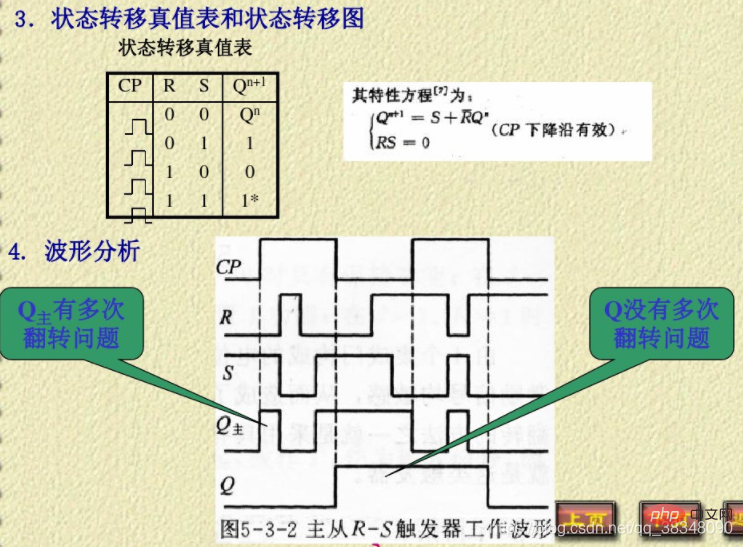
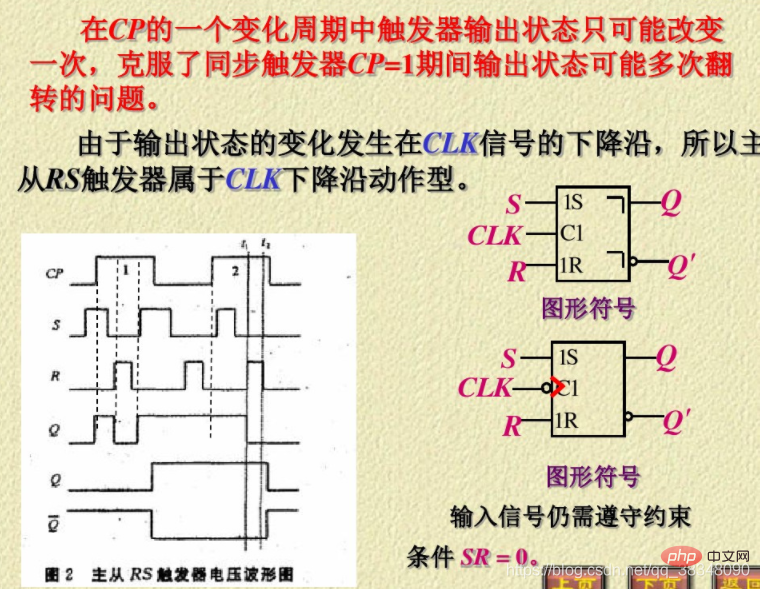
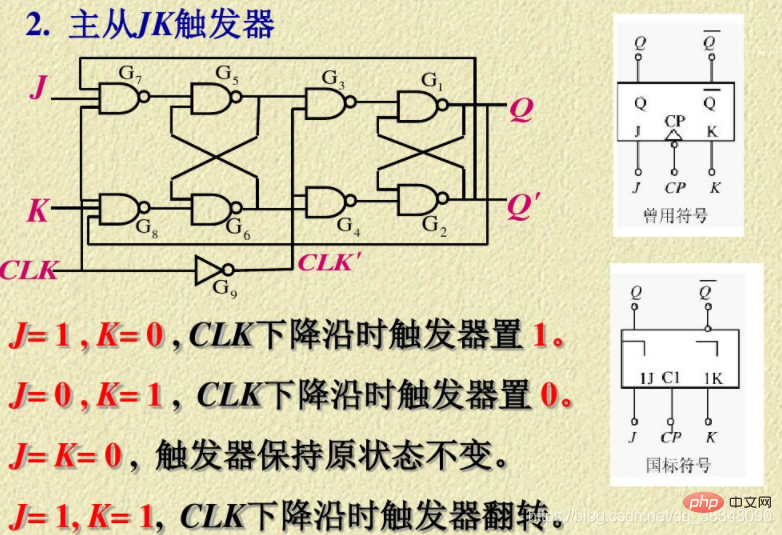
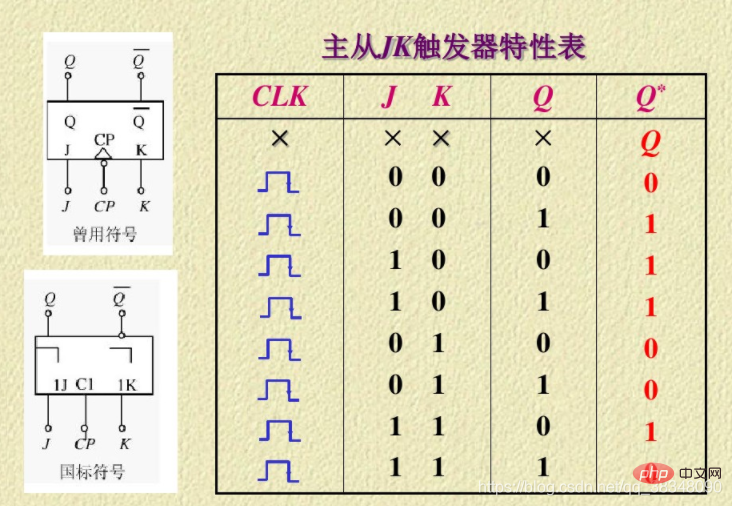
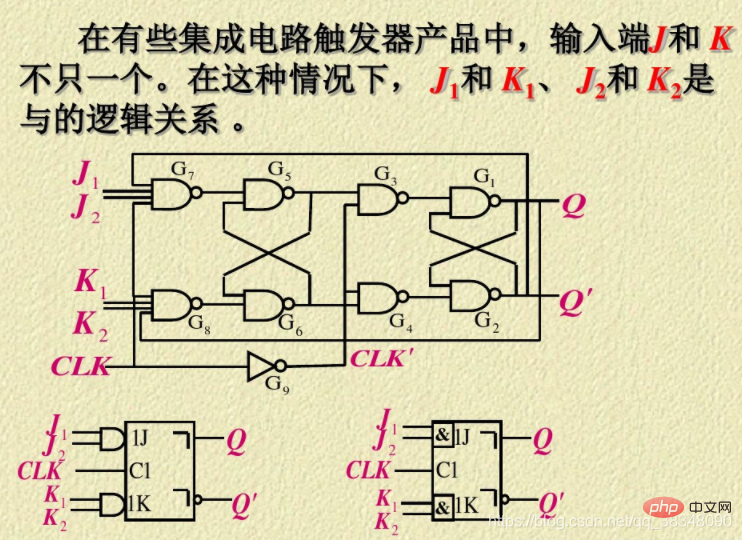
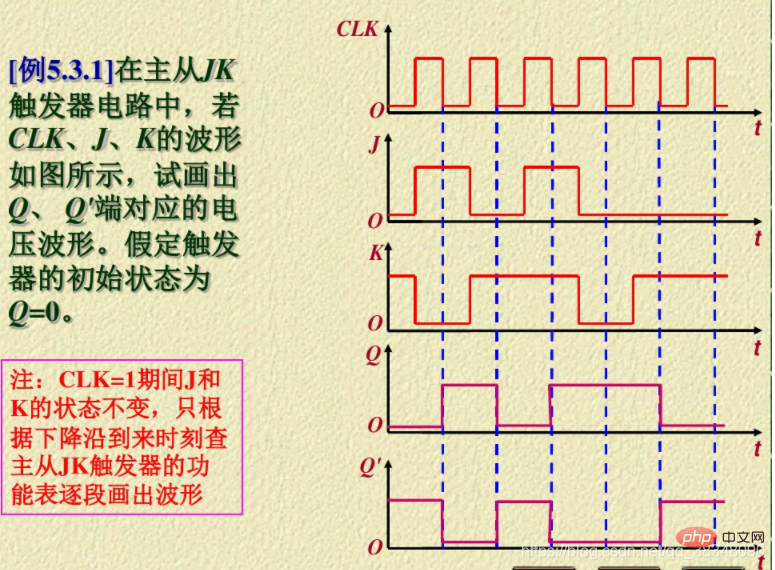
1. The flip of the trigger is divided into two steps.
The first step is that during CLK=1, the master flip-flop receives the input signal, while the slave flip-flop does not move;
The second step is that when the falling edge of CLK arrives, the slave flip-flop follows the master's The flip-flop state flips, so the change in the state of Q and Q' occurs on the falling edge of CLK (if CLK is a low-level active signal, the state change of Q and Q' occurs on the rising edge of CLK).
2. Because the main flip-flop itself is a level-triggered SR flip-flop, the input signal will control the main flip-flop during the entire time when CLK=1.
The difference between pulse triggering and edge triggering:The pulse-triggered master-slave JK flip-flop cannot simply be judged by the J and K states at the falling edge of the clock. The state of Qn 1,
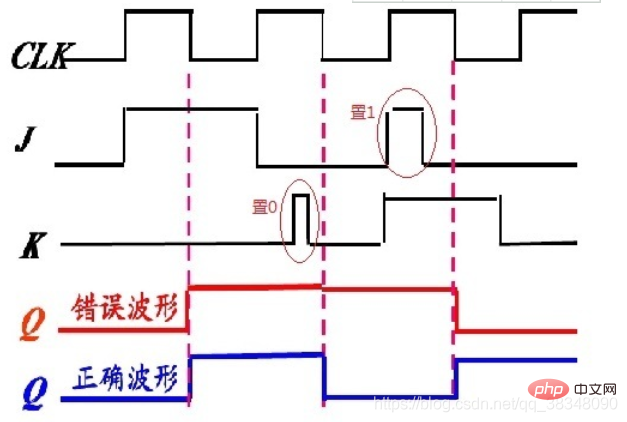 is as shown in the figure. During the high level of the clock, the states of J and K will change the logical relationship of the effective time. Originally, when J = K = 0 , Q remains unchanged.
is as shown in the figure. During the high level of the clock, the states of J and K will change the logical relationship of the effective time. Originally, when J = K = 0 , Q remains unchanged.
For more related knowledge, please visit the
FAQThe above is the detailed content of What are the three triggering methods of triggers?. For more information, please follow other related articles on the PHP Chinese website!

Hot AI Tools

Undresser.AI Undress
AI-powered app for creating realistic nude photos

AI Clothes Remover
Online AI tool for removing clothes from photos.

Undress AI Tool
Undress images for free

Clothoff.io
AI clothes remover

Video Face Swap
Swap faces in any video effortlessly with our completely free AI face swap tool!

Hot Article

Hot Tools

Notepad++7.3.1
Easy-to-use and free code editor

SublimeText3 Chinese version
Chinese version, very easy to use

Zend Studio 13.0.1
Powerful PHP integrated development environment

Dreamweaver CS6
Visual web development tools

SublimeText3 Mac version
God-level code editing software (SublimeText3)

Hot Topics
 How to hide text until clicked in Powerpoint
Apr 14, 2023 pm 04:40 PM
How to hide text until clicked in Powerpoint
Apr 14, 2023 pm 04:40 PM
How to hide text before any click in PowerPoint If you want text to appear when you click anywhere on a PowerPoint slide, setting it up is quick and easy. To hide text before clicking any button in PowerPoint: Open your PowerPoint document and click the Insert menu. Click on New Slide. Choose Blank or one of the other presets. Still in the Insert menu, click Text Box. Drag a text box onto the slide. Click the text box and enter your
 How to write triggers in MySQL using PHP
Sep 21, 2023 am 08:16 AM
How to write triggers in MySQL using PHP
Sep 21, 2023 am 08:16 AM
How to write triggers in MySQL using PHP MySQL is a commonly used relational database management system, and PHP is a popular server-side scripting language. Using PHP to write triggers in MySQL can help us realize automated database operations. This article will introduce how to use PHP to write MySQL triggers and provide specific code examples. Before starting, make sure that MySQL and PHP have been installed and the corresponding database tables have been created. 1. Create PHP files and data
 How to add trigger in oracle
Dec 12, 2023 am 10:17 AM
How to add trigger in oracle
Dec 12, 2023 am 10:17 AM
In Oracle database, you can use the CREATE TRIGGER statement to add triggers. A trigger is a database object that can define one or more events on a database table and automatically perform corresponding actions when the event occurs.
 How to write custom triggers and stored procedures in MySQL using PHP
Sep 20, 2023 am 11:25 AM
How to write custom triggers and stored procedures in MySQL using PHP
Sep 20, 2023 am 11:25 AM
How to write custom triggers and stored procedures in MySQL using PHP Introduction: When developing applications, we often need to perform some operations at the database level, such as inserting, updating, or deleting data. MySQL is a widely used relational database management system, and PHP is a popular server-side scripting language. This article will introduce how to write custom triggers and stored procedures in MySQL using PHP, and provide specific code examples. 1. What are triggers and stored procedure triggers (Trigg
 How to write custom triggers in MySQL using Python
Sep 20, 2023 am 11:04 AM
How to write custom triggers in MySQL using Python
Sep 20, 2023 am 11:04 AM
How to write custom triggers in MySQL using Python Triggers are a powerful feature in MySQL that can define some automatically executed operations on tables in the database. Python is a concise and powerful programming language that can easily interact with MySQL. This article will introduce how to write custom triggers using Python and provide specific code examples. First, we need to install and import the PyMySQL library, which is Python's way of working with a MySQL database
 What level is mysql trigger?
Mar 30, 2023 pm 08:05 PM
What level is mysql trigger?
Mar 30, 2023 pm 08:05 PM
MySQL triggers are row-level. According to SQL standards, triggers can be divided into two types: 1. Row-level triggers, which will be activated once for each row of data modified. If a statement inserts 100 rows of data, the trigger will be called 100 times; 2. Statement-level triggers The trigger is activated once for each statement. A statement that inserts 100 rows of data will only call the trigger once. MySQL only supports row-level triggers, not prepared statement-level triggers.
 How to write custom stored procedures, triggers and functions in MySQL using C#
Sep 20, 2023 pm 12:04 PM
How to write custom stored procedures, triggers and functions in MySQL using C#
Sep 20, 2023 pm 12:04 PM
How to write custom stored procedures, triggers and functions in MySQL using C# MySQL is a widely used open source relational database management system, and C# is a powerful programming language for development tasks that require interaction with the database. Say, MySQL and C# are good choices. In MySQL, we can use C# to write custom stored procedures, triggers and functions to achieve more flexible and powerful database operations. This article will guide you in using C# to write and execute
 How to use parameters in MySQL triggers
Mar 16, 2024 am 09:27 AM
How to use parameters in MySQL triggers
Mar 16, 2024 am 09:27 AM
A MySQL trigger is a special program used in the database management system to monitor the operations of a specific table and perform corresponding operations based on predefined conditions. When creating a MySQL trigger, we can use parameters to flexibly pass data and information, making the trigger more versatile and applicable. In MySQL, triggers can trigger and execute corresponding logic before or after the INSERT, UPDATE, and DELETE operations of a specific table. Using parameters can make triggers more flexible and can be passed as needed.





